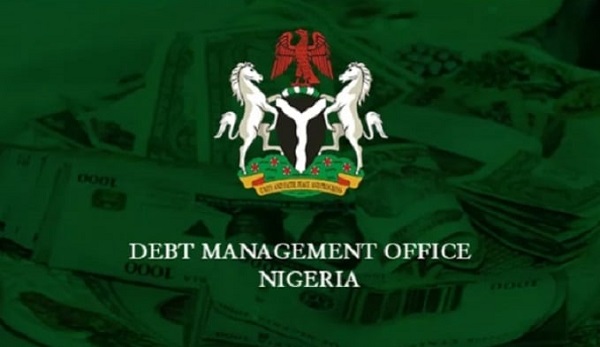Nigeria’s Ballooning Debt: Don’t Panic, China is not the Devil
Many Nigerians are worried about rising debt profile of the nation which settled at ₦28.6 trillion in the first half of 2020.
Of the sum, Nigeria’s indebtedness to the Chinese as at first quarter of 2020 settled at ₦1.1 trillion or ($3.1 trillion).
Experts stated that this is a low risk to the Nigeria’s gross domestic size, and its risk is further reduce due to annual budget provisioning for service cost.
It would be recalled that Zambia is currently facing debt crisis, and loan covenant allow China’s a right of lien on the country’s infrastructure.
“It is not the loan, it is the contract details, loan covenants that worry Nigerians”; analysts told MarketForces.
The recent street uproar about rising profile of Nigeria’s indebtedness which has started building since 2015 attracted reactions from the Debt Management Office (DMO).
According to data, DMO put the nation’s exposure to the Chinese at $3.1 billion, which after conversion at the Central Bank of Nigeria’s official foreign exchange rate translates to ₦1.1 trillion.
In its recent macroeconomic tagged understanding Nigeria’s indebtedness to China, Afrinvest, an investment banking firm headquartered in Lagos, said China’s loan accounts for 11.3% of Nigeria’s external indebtedness.
Afrinvest stated that there is concern about who truly benefits from China’s infrastructure investments in developing economies through direct loans.
Especially, given stringent conditions that could mean handing over sovereign assets to the country in the event of a default.
Read Also: PFAs withdrawal, CRR Debits Tighten Financial System Liquidity
The investment banking firm stated that this reputation has recently been earned with China’s takeover of the $1.3 billion Hambantota Port in Sri Lanka for 99 years in 2017.
That is, a project which suffered financial losses and could not repay the debt financing the construction.
Analysts at Afrinvest stated that concerns about Chinese lending are also not helped by the usual lack of transparency around them.
This is much unlike commercial debt obtained from the Eurobond market and multilateral debt sourced from institutions such as the World Bank, the International Monetary Fund (IMF) and African Development Bank (AfDB).
“In our view, what is clear is that while China’s interests in these projects can be strategic and unclear, it is also mostly about selling excess capacity to the rest of the world, with China financing projects that se its products and services”, Afrinvest explained.
It would be recalled that the DMO has sought to address these concerns by providing clarity on bilateral loans from China.
In the review, Afrinvest explained that historical data suggest that total bilateral lending from China since 2010 is $5.6 billion, with an average size of $506.8m at 2.5% interest rate per annum, seven (7) years moratorium and a tenor of twenty (20) years across eleven (11) projects.
These projects are mainly in road, airports and railway development but also for infrastructure in agriculture, power, water and ICT.
Supporting its view with data, Afrinvest said only five project loans have been fully disbursed, four have a disbursement rate ranging from 17.5% to 91.1% while three are yet to be disbursed at all.
Of the total sum made available to the Government, the $1.3 billion loan obtained for the Ibadan-Lagos section of the Nigeria Railway Modernisation Project is the largest.
As at first quarter of 2020, total outstanding borrowing from China stood at $3.1 billion or ₦1.1 trillion, which is 3.9% of total public debt and 11.3% of total external debt.
Afrinvest said the low share of borrowing from China and the attractive terms signal low risk.
Especially when compared with Zambia which is facing debt troubles as 65.8% of its total external debt is owed to China according to the Brookings Institution in 2019.
To buttress this point, the DMO noted that loan terms were properly reviewed before signing and that repayments are fully provided for in annual budgets while the projects either generate revenues or have revenue generating potentials.
Another issue of contention is the quality of these projects but experts at Afrinvest noted that this is assured under the right framework and bidding process, much like projects implemented by non-Chinese firms.
“In our opinion, China’s infrastructure loans provide strong expertise and offer access to infrastructure financing through concessional debt which would have been difficult to obtain otherwise.
“China’s investments also provide competition to other financing options available, which means Nigeria should get better terms for its investments assuming selection is done right”, Afrinvest explained.
Overall, Afrinvest stated that the lesson is that the impact of these projects ultimately depends on Nigeria’s selection of funding/implementation partners, project specifications and the identification of projects that can deliver the most economic benefit.
“Our concern is that getting these conditions right is rarely assured in Nigeria, which could result in sub-optimal impact”, the firm remarked.
The devil is in the infrastructural design, assessment, contracts administration and projects implementation plus associated Nigerian factors in a bucket.
Nigeria’s Ballooning Debt: Don’t Panic, China is not the Devil
